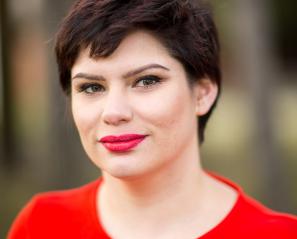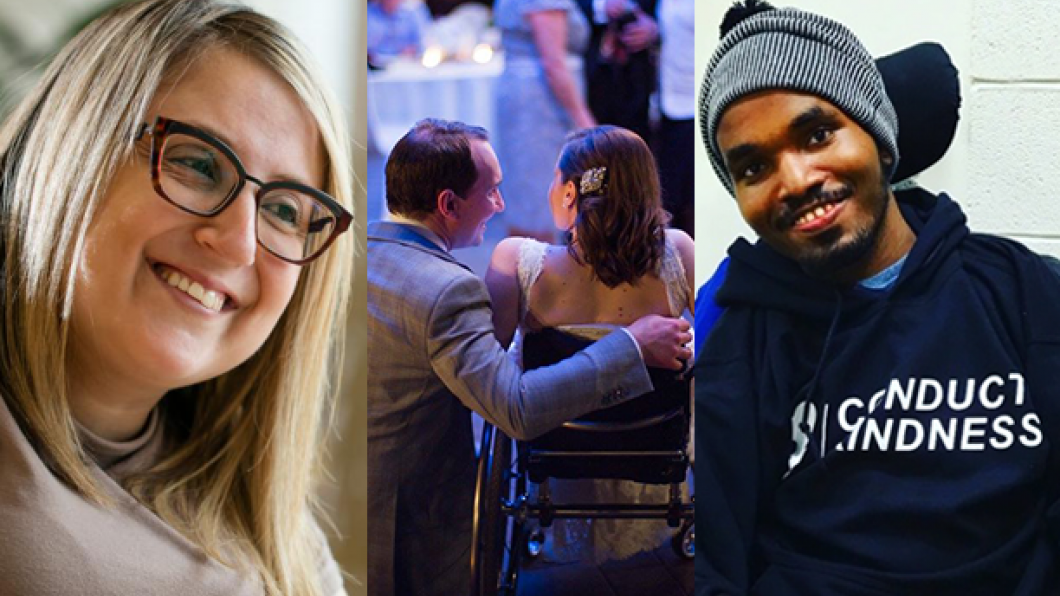
It’s time to talk about dating and disabilities
When it comes to dating with a disability, many kids and teens are often left in the dark about what they can and should ask.
Regardless of the disability, the misconceptions surrounding sex and dating for people with a disability, and especially within inter-abled relationships, are still quite common and still often dismissive.
That’s why it’s time to end that stigma.
And it’s most definitely time to talk about it.
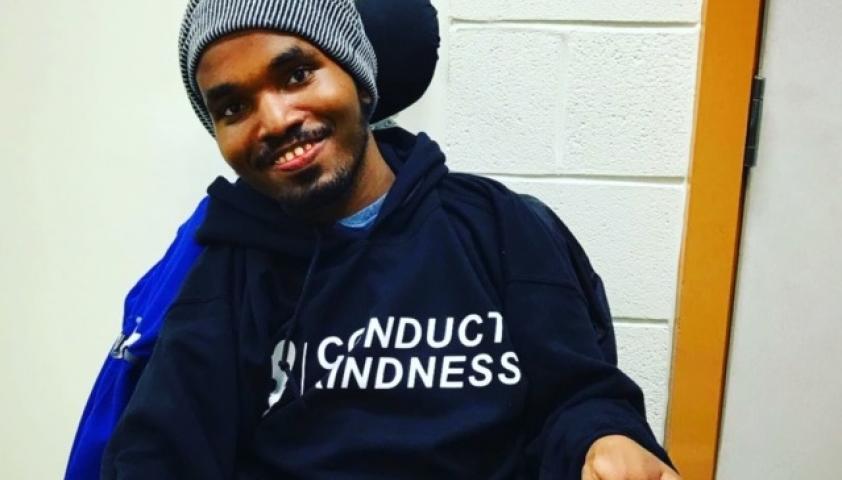
Abdi
For 23-year-old Abdi, days often involve watching Netflix, talking to friends, listening to music, or writing on his blog.
Recently, it also involved opening up about dating on his blog—something he admits is nothing short of both fun and terrifying.
Raised in a traditional family, Abdi admits the idea of relationships and dating was rarely discussed and he often turned to friends, his social worker, and even YouTube videos from influencers like Squirmy and Grubs, to answer his questions.
And although the radio broadcaster has no problems expressing himself, having been born with cerebral palsy, he admits that “dating with a disability is hard.”
“I’ve always been interested in dating but when people see me in a wheelchair, it’s like they have this sense they want to run,” he says.
“I often ask myself, are they looking at me and thinking, ‘Do I have to be his caregiver?’”
It’s an assumption Abdi tries to battle with humour—cracking jokes to lighten the mood—and especially with conversation.
“I think [people with disabilities] are just scared to talk about [dating] because they don’t want to visit that emotional pain again and I’m here to say it’s okay to talk about it.”
As for advice he’d give other youth looking to beginning dating, Abdi says to not rush.
“I’ve been through this situation before when someone doesn’t feel the same way about me, and I feel sad and I don’t want to let my guard down—but keep your head up,” he says.
“Just be patient and whenever your time comes, your time will come. I think that goes for everyone, regardless of ability.”
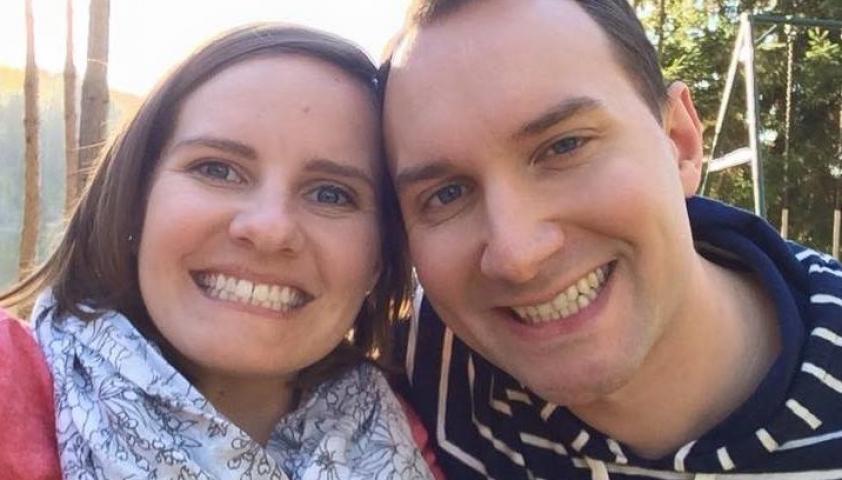
Alison
Alison has always believed everyone has a right to date and have a relationship and find love. It’s why growing up, from a young age, she didn’t see a problem with expressing her feelings.
Coupled with an older sister and parents who modelled healthy relationships, it wasn’t hard for her to navigate the world of dating. After forays into online dating, she ended up meeting her husband Peter.
Alison was born with sacral agenesis, meaning she was born without a portion of her lower spine. While she’s paraplegic and uses a wheelchair to get around, Alison acknowledges that her privilege being a white, heterosexual, cis woman gave her a different experience than others who may be navigating various intersections.
She also admits that while a majority of her experiences dating were positive, it wasn’t without challenges.
As her husband is able-bodied, the couple often gets greeted with comments like “good for you” when strangers realize they’re together.
“There are visual assumptions made of Peter making him out to be a hero or a saint, but we’re very much like any other couple and I’m quite independent,” she says. “Any and all relationships are give and take, so it’s not that we’re without common relationship problems. At the end of the day, we’re a good match.”
And while she knows some people looking from the outside in consider her lucky, marriage did come with a sacrifice.
“Choosing to get married, there isn’t disability marriage equity,” she says.
“So you give up pretty much any disability support, including ODSP or financial support for home and vehicle modifications, by getting married. I wasn’t getting those before I got married, but marriage jeopardizes me getting those if ever needed.”
Reflecting on what it was like to grow up, she admits that conversations about this were rare.
“I had to take initiative and seek out the right supports in healthcare,” she says.
“I do think the tides are turning, though I haven’t seen a huge shift. There is a stigma about people finding partners through attendant care, or that we are asexual and not seen as worthy or desirable.”
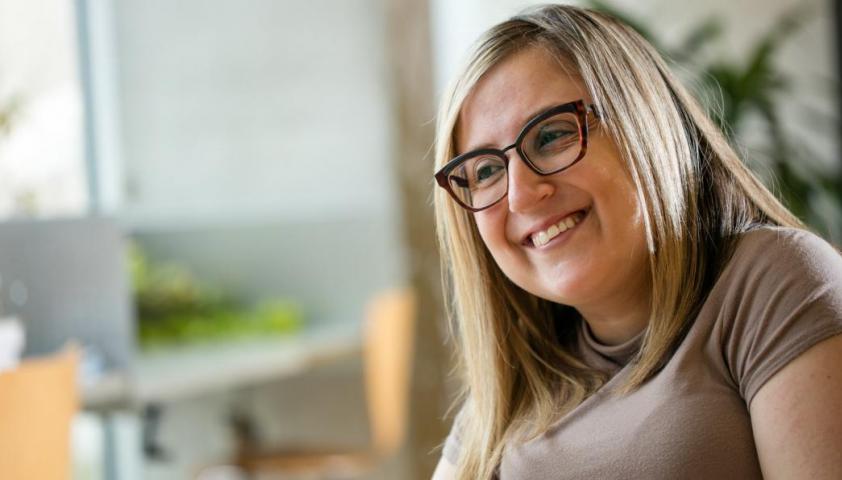
Gabriella
The lack of conversation surrounding dating is something Gabriella, a social worker, is hoping to change.
Growing up with a disability, Gabriella knows firsthand how imperative ending the stigma surrounding discussions about dating, relationships, and sex, are for teens and young adults.
“It’s not normalized as something that is a need, desire, or goal for individuals with disabilities,” she says.
“And without normalizing it there are many questions [kids and teens] don’t get to ask.”
In order to combat this, Gabriella teamed up with Yukari Seko, a research associate at Bloorview Research Institute, to develop a new online workshop aimed at helping parents talk to their kids with a disability about sex.
For Gabriella, she also believes that early discussions and modelling healthy relationships are a great way to address the conversation.
“Social workers are generally comfortable talking about gender, sexuality, and identity and I feel people think this topic is very taboo but my belief is, like a lot of the topics I deal with, the more we talk about it the more we reduce the stigma.”
And it’s okay if that that means allowing kids to open up to their social worker, healthcare team, or even an aunt or older cousin, instead of their parents.
Overall, it’s about creating a safe space with someone both parents and child can trust.
